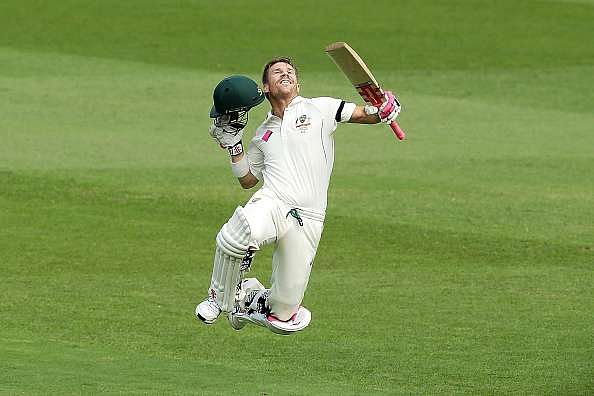
Stats of players who made it to the ICC Test Team of the Year
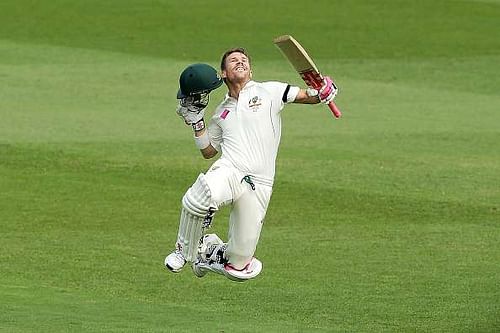
The much-awaited ICC Awards were announced yesterday. Ravichandran Ashwin, the MVP of India’s team according to many, ahead of the talismanic Virat Kohli, became only the third Indian to win the Sir Garfield Sobers Trophy given to the ICC Cricketer of the Year. He was also named the Test Cricketer of the Year, making 2016 a memorable one for him, even as he finished as the ICC No.1 Test All-rounder and No.1 Test bowler.
It is worthwhile to take a look at the numbers of each of the 12 players who made it to the ICC Test Team of the Year. After all, it is no ordinary accomplishment to be on the best cricket team on the planet.
Virat Kohli misses out because the voting period was from September 2015 to September 2016 and some of his best knocks came after that period. It is almost ironic that Cook is the captain of this team as he had a rocky phase after the voting period ended with some experts calling for his head following a disastrous tour to India.
Mind you, these numbers are not for the calendar year 2016 but for the period between September 2015 and 2016.
David Warner (Australia)
Warner makes it as the opener of this classy team, sixth on the list of run-getters during the voting period. In 11 matches and 19 innings, Warner scored 1020 runs at 56.66. However, his impact can be measured from the fact that he scored those massive piles of runs at a blistering strike-rate of 89.70, the highest by a country mile for anyone with more than 500 runs. Stokes scored at 86.64 but his average was a much lower 36.33.
Warner scored 4 centuries and 2 half-centuries – a great conversion rate. He started with a bang, his first three innings during the voting period were all centuries. The third one was a double ton, 253 in just 286 balls against New Zealand at Perth.
Before that, he scored two centuries in two innings of a Test against New Zealand. Warner showed a great sense of responsibility as Australia’s vice-captain too.
| Name | Tests | Innings | Runs | Average | 100s | 50s |
| David Warner | 11 | 19 | 1020 | 56.66 | 4 | 2 |
Alastair Cook (Captain) (England)
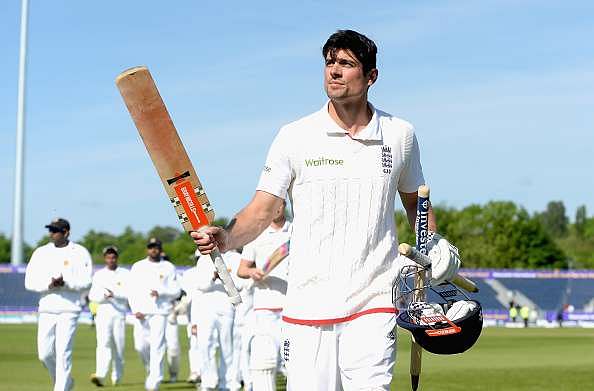
Cook came a close second behind his team-mate and vice-captain, Joe Root, scoring 1269 runs in 26 innings at 55.17. He managed 2 centuries and 7 half-centuries. Cook ended the voting period on a high in a rich vein of form but his double ton came in his very first innings during the voting period, probably the innings that propelled him into this team.
He scored a massive 263 at Abu Dhabi against Pakistan in a drawn match, as England batting second managed to respond well to a colossal 523 scored by Pakistan. England were tantalizingly close to a miraculous win as they had to chase down 99 in 11 overs but they managed 74.
Cook is also the second most prolific skipper behind Smith in Test wins. In 6 wins out of 14 Tests, Cook scored 438 runs at 48.66.
| Name | Tests | Innings | Runs | Average | 100s | 50s |
| Alastair Cook | 14 | 26 | 1269 | 55.17 | 2 | 7 |
Also Read: 5 undeserving recipients of 2016 ICC awards
Kane Williamson (New Zealand)
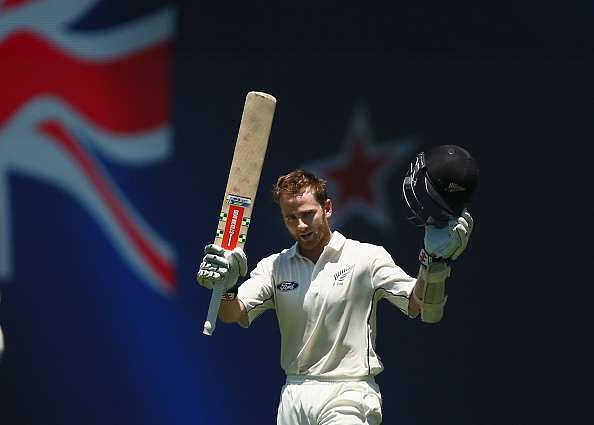
Williamson scored two centuries in successive Tests at the beginning of the voting period, both of them coming against Australia in Australia at Brisbane and Perth, the latter coming during a phenomenal match saving partnership with Ross Taylor.
In all, Williamson made 1194 runs in 11 Tests and 20 innings at an average of 74.62 with 4 centuries and 7 half-centuries, the most number of fifty-plus scores, at par with Joe Root. He also got the captaincy during this period, scoring 356 runs in 4 Tests as skipper at 89, winning 2 of those Tests.
Part of the voting period came during a prolific year for Williamson, who made 2692 runs in 2015, the third most by any batsman in a calendar year across all formats.
| Name | Tests | Innings | Runs | Average | 100s | 50s |
| Kane Williamson | 11 | 20 | 1194 | 74.62 | 4 | 7 |
Joe Root (England)
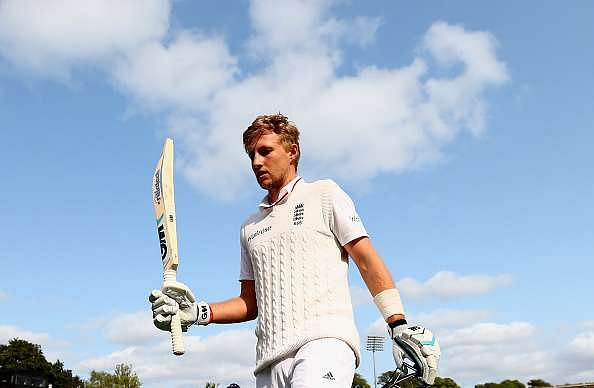
Joe Root is the leading run-getter during the voting period, scoring 1272 runs, 3 more than his skipper Alastair Cook, in the same number of Tests and innings, 14 and 26 respectively and almost with the same average. Root averages 55.30 with a strike-rate of 62.13.
The Englishman’s conversion rate was bad though. Despite 11 fifty-plus scores, joint most during the voting period, Root managed only 2 centuries. During this time, he scored a double ton as well, a match-winning 254 against Pakistan at Manchester to script a massive win for England in a well-contested drawn series.
| Name | Tests | Innings | Runs | Average | 100s | 50s |
| Joe Root | 14 | 26 | 1272 | 55.3 | 2 | 9 |
Adam Voges (Australia)
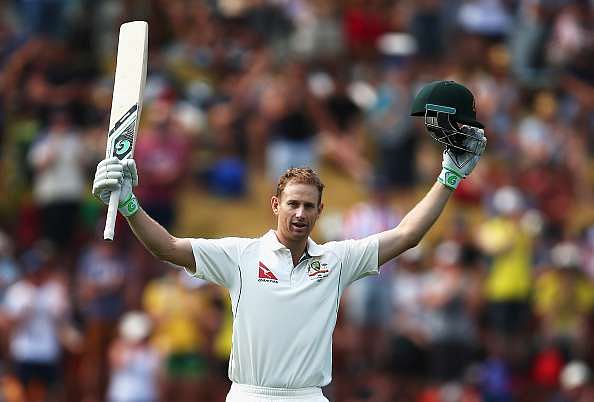
It is ironical that Voges, whose career as an Australian cricketer is probably over, made it to this team. Voges had a great run during the voting period, before the downfall where the axe probably fell on him because of his age.
During the voting period, Voges scored 1087 runs in just 17 innings in 11 Tests at a Bradmanesque average of 90.58, the highest amongst the top 50 run-getters by a long distance. Voges’ high average is partially because of an unbeaten 269* that he scored against West Indies at Hobart.
There was another double century soon enough, 239, against New Zealand at Wellington. In all, Voges managed 4 centuries and 2 half-centuries.
| Name | Tests | Innings | Runs | Average | 100s | 50s |
| Adam Voges | 11 | 17 | 1087 | 90.58 | 4 | 2 |
Jonny Bairstow (England)
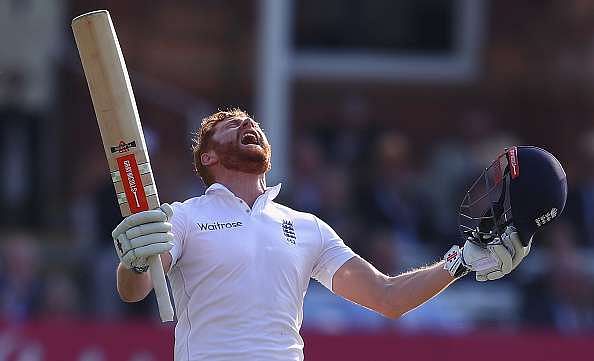
Bairstow would probably make it to the team as the wicket-keeper. England’s best batsman of 2016 scored 1246 runs during the voting period after making some technical changes to his backlift. The result was mesmerising as Bairstow racked up 3 centuries and 5 half-centuries in 24 innings.
His runs came at an average of 59.33 and more importantly, at a strike-rate of 60.54. Bairstow would probably make it to next year’s team as well given his massive tally of 1470 runs in 2016, the highest by a wicket-keeper in any calendar year, a whopping 435 runs more than second-placed, ex-England coach, Andy Flower who had held the record for a long time.
| Name | Tests | Innings | Runs | Average | 100s | 50s |
| Jonny Bairstow | 14 | 24 | 1246 | 59.33 | 3 | 5 |
Ben Stokes (England)
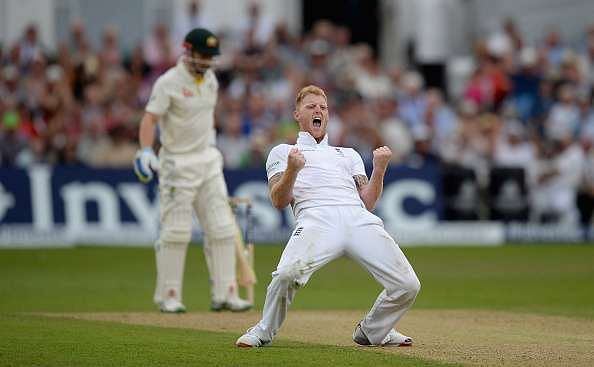
Probably England’s MVP, Ben Stokes makes it to the team as a swashbuckling all-rounder. He managed 545 runs in 15 innings across 9 matches at an average of 36.33 and a strike-rate of 86.64 and he is only getting started.
The highlight of this time period for Stokes is his 258 in just 198 balls against South Africa in their own den in Cape Town, a career-defining innings that included 30 fours and 11 sixes. Stokes also picked up 20 wickets at 31.65 including a four-wicket haul, offering England an excellent seam-up option as he is genuinely capable of moving the ball both ways at pace.
Batting
| Name | Tests | Innings | Runs | Average | 100s | 50s |
| Ben Stokes | 9 | 15 | 545 | 36.33 | 1 | 2 |
Bowling
| Name | Tests | Innings | Wickets | Average | 5 | 10 |
| Ben Stokes | 9 | 15 | 20 | 31.65 | 0 | 0 |
R Ashwin (India)
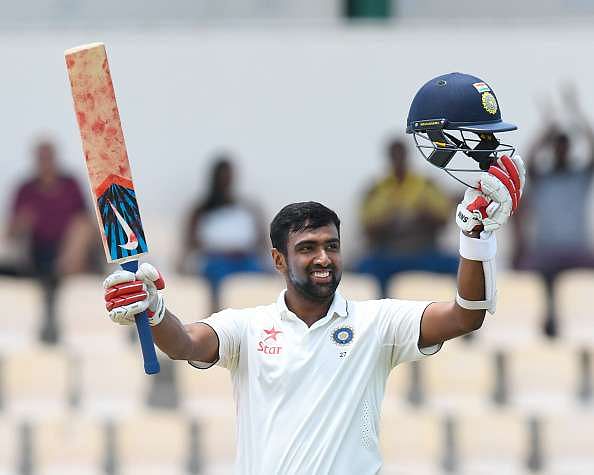
In current form, Ashwin can make it to the Indian team as a pure batsman and that is not even his primary trade. It is no wonder then that he won the Test Cricketer of the Year Award. Ashwin scored 336 runs in 9 innings at 42 with 2 centuries and 1 half-century, largely instrumental in India’s lower order resurgence.
Most of Ashwin’s runs are priceless having come in tough situations. Ashwin is fifth on the list of highest wicket-takers with 48 wickets. However, he makes it to the team because his wickets have come in just 14 innings across 8 Tests, the next lowest amongst the top 5 being Herath’s 19 innings.
The Indian’s 48 wickets have come at an unbelievably parsimonious average of 15.39. Anderson has the next lowest average amongst the top five wicket-takers of 19.24. Ashwin picked up 6 five-wicket hauls during this period too and boasts of a strike-rate of 36.9, second only to Starc amongst the top 20 wicket-takers.
Ashwin also picked up those heaps of wickets in fewer than 300 overs, the remaining four in the top 5 bowling more than 400 overs. Ashwin was on a red-hot Man of the Series streak during the voting period as well.
Batting
| Name | Tests | Innings | Runs | Average | 100s | 50s |
| Ravichandran Ashwin | 8 | 9 | 336 | 42 | 2 | 1 |
Bowling
| Name | Tests | Innings | Wickets | Average | 5 | 10 |
| Ravichandran Ashwin | 8 | 14 | 50 | 15.39 | 6 | 1 |
Rangana Herath (Sri Lanka)
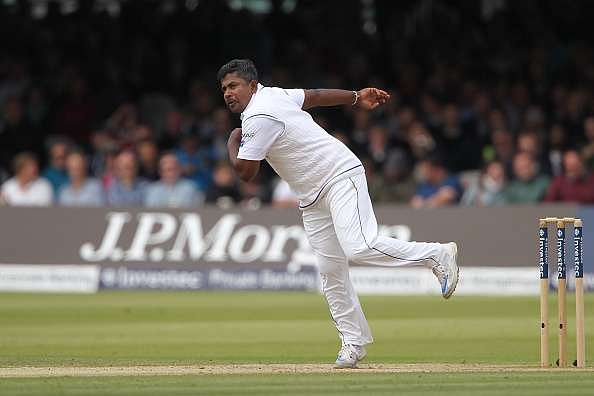
Herath was Sri Lanka’s brightest spot during an ordinary year for Sri Lanka. Herath topped the wicket-taking charts with 54 wickets at 20.98 in 19 innings with four five-wicket hauls, taking ten wickets in a match twice.
Herath’s best was probably in the last match of the voting period, when he picked up 13 wickets to wreck Australia at home. The Sri Lankan also racked up useful figures with the bat for Sri Lanka in England as well as at home. Although unsuccessful in New Zealand and England, Herath more than made up with bucketloads of wickets at home.
| Name | Tests | Innings | Wickets | Average | 5 | 10 |
| Rangana Herath | 10 | 19 | 54 | 20.98 | 4 | 2 |
Mitchell Starc (Australia)
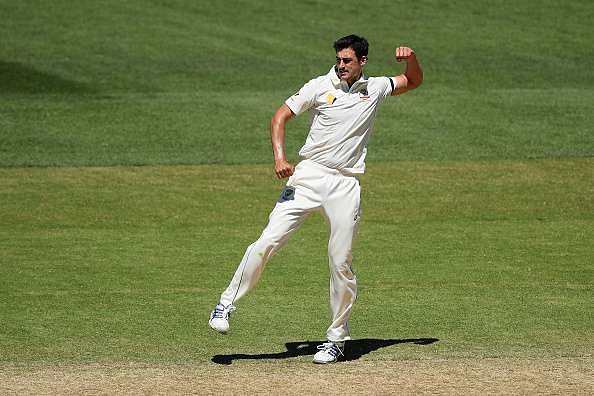
It is the impact created by the Australian left-arm fast bowler that propelled him into the team despite being only seventh on the wicket-takers’ list. Starc, like Steyn, made it to the team ahead of other top wicket-takers like James Anderson and Stuart Broad, both of whom picked 50 wickets.
Starc got his 37 wickets in just 11 innings at 18 apiece, at a strike-rate of 31.3, the lowest for any bowler with more than 10 wickets during the time period. What more, Starc picked up wickets even in the sub-continent, including 24 wickets in a 3-Test series in the sub-continental conditions in Sri Lanka where fast bowlers usually struggle.
Starc was probably one of the lone bright spots in a disastrous tour for Australia which lost the series 0-3.
| Name | Tests | Innings | Wickets | Average | 5 | 10 |
| Mitchell Starc | 6 | 11 | 37 | 18 | 3 | 1 |
Dale Steyn (South Africa)
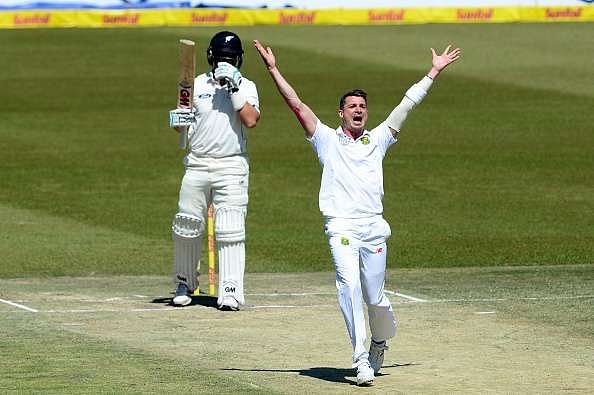
Steyn’s inclusion was a massive surprise as he played only 4 matches during the voting period, picking up 15 wickets. 8 of those 15 came in one match at Centurion against New Zealand.
Steyn was on fire in that match as he wrecked New Zealand in the second innings with three wickets in two successive overs, the Kiwis reduced to 7 for 4 during that fiery spell. Steyn’s 14 wickets came at 15.14 apiece.
| Name | Tests | Innings | Wickets | Average | 5 | 10 |
| Dale Steyn | 4 | 6 | 14 | 15.14 | 1 | 0 |
Steven Smith (Australia)
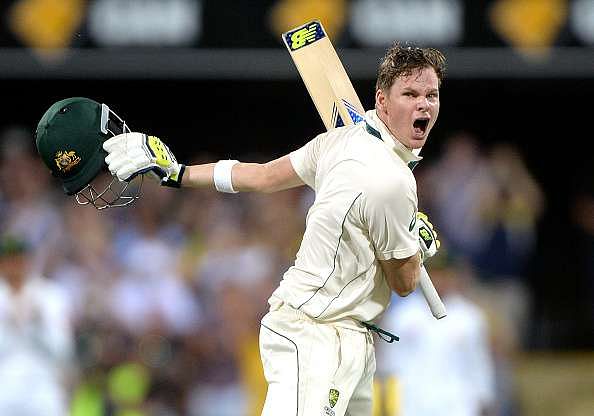
Smith, the 12th man of this team accumulated 1004 runs in 18 innings at 66.93 with 4 centuries and 5 half-centuries. Smith scored some tough runs too, including 119 in a disastrous series in Sri Lanka. He also scored 138 in Christchurch, New Zealand, another away century in a series that Australia won 2-0, showing that captaincy has only augmented his batting quality.
| Name | Tests | Innings | Runs | Average | 100s | 50s |
| Steve Smith | 11 | 18 | 1004 | 66.93 | 4 | 5 |
Also Read: Why Virat Kohli did not find a place in the ICC Test team of 2016